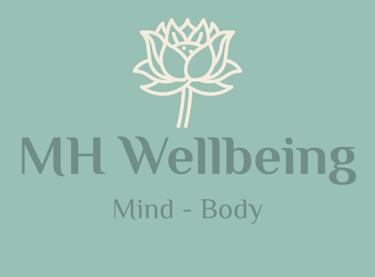8 Simple ways to overcome the January Blues
LOW MOOD
Maria Hancock
1/7/20224 min read


8 Simple Ways to Overcome the January Blues.
Picking yourself up after the festive season can be hard for many of us. If you've had the pleasure of enjoying partying with friends, drinking and eating to excess, the thought of going back to work can be quite depressing. Let's face it, Christmas itself can be stressful: first you have the stress of all of the Christmas shopping before Christmas, and then you have the cooking, and having to put up with relatives that you would rather not see. Some people can feel very isolated at Christmas if they don't have family or friends to celebrate it with. Plus, the weather can be a gloomy, cold and wet, the days are still short and the summer seems so far away.
Most of us end up with extra weight to get rid of over Christmas, which can make you feel disgruntled about your fat gain. Even if you have a regular exercise routine, getting back into it can be difficult, especially with the extra weight you are carrying, which can slow you down. Add to this the fact that we can often make New Year's resolutions such as abstaining from things that we love, like alcohol, and promises to go to the gym every morning. But when the cold reality sets in and we find it difficult, we can often give up and then feel a failure.
Psychological research can help explain how our mood can dip at this time of year: Prof Ed Watkins (director of the University of Exeter's mood disorders Centre) explains that "depressed mood is often exacerbated by a percentage of a gap between how someone wants things to be and how they actually are. These actual-ideal discrepancies are highlighted at this time of year. Some people can also negatively compare how they are now with what they used to be able to do or what they hoped they would have achieved by now and this can lower their mood."
So how do we get our joie de vivre back?
1. Get active. Prof Watkins advised that being more physically active can help beat the January blues. There is much research to support the fact that physical activity is not just good for the body, but also great for the mind. If you take part in an activity with another person, it can be even more beneficial. Why not join RED January (RUN EVERY DAY in January), who have partnered up with Mind this year to encourage people to do an activity every day of January in order to boost their mental and physical health. Whether you decide to run, walk, skip, gallop or swim, give it a go, whatever your level of fitness. Just choose a level that is right for you, even if it's five minutes. Activity outside can be even better for you, as you then gain the benefits of the sun as well.
2. Use the power of the sun. A 2015 study on Seasonal Affective Disorder (SAD) found that increased exposure to sunlight may increase levels of the neurotransmitter serotonin, a “natural antidepressant in the brain.”
3. Spend time with other people or absorbed in activities. Prof Watkins also advises getting mentally active, by connecting with other people, or by being absorbed in interesting activities. If you haven't already got a hobby, why not try one out? Meetup.com can be a good place to find other people with similar interests, from book clubs to bongo playing, there's something for everyone.
Make time to meet with friends. Often we can enjoy these relaxed times more than those occasions when we put pressure on ourselves to have a good time. Meet for coffee, host a brunch, go to the cinema or a shopping trip with a friend.
4. Plan something to look forward to. It's always good to have something to look forward to, and so at this time of year it's even more important. January is a popular month to book the summer holiday, but why not book something sooner, even if it's just weekend to get away and recharge your batteries. There are lots of destinations that are warmer than the UK if it's heat that you long for. Otherwise, a spa weekend or day can be rejuvenating. If money is a barrier to booking something expensive, think small. Book yourself some time off to pamper yourself at home. Make a list of all the things that you enjoy doing, even if you haven’t done it for a while, and plan to do more of what you enjoy, however small.
5. Sing the blues to relieve the blues. It's long been known that singing can improve our mood. It doesn’t matter how good or bad your voice is (my children might beg to differ). Sing at home alone or join a choir. It can help reduce muscle tension, improve your breathing and distract your mind away from negative thoughts. For an even greater boost, sing along to uplifting songs. Make a playlist of your favourite, uplifting tracks, so that you can play them when you are feeling low.
6. Enjoy some quiet time mindfully meditating. It doesn't matter how long, even if it's five or 10 minutes. Mindfulness meditation can improve your mood and mental balance. Just bear in mind that it may take a number of weeks to reap the benefits of daily mindfulness practice, so it may be February before you notice any benefits.
7. Enjoy nature. Intuitively, we feel that nature is good for us as humans, but the results of a recent study showed amazing results. It involved people doing “something wild” every day for 30 consecutive days. The study showed that there was a scientifically significant increase in people’s health, happiness and connection to nature, during and for months after the challenge was completed. Check here for further on the research:
http://www.bbc.co.uk/earth/story/20160420-how-nature-is-good-for-our-health-and-happiness
8. Release the power of laughter. We all like to laugh, but did you know that it can actually improve your health? Laughter brings people together in ways that trigger healthy physical and emotional changes in the body. It strengthens the immune system, diminishes pain, boosts mood and can protect you from the effects of stress. Laughter decreases stress hormones and increases immune cells and antibodies, improving resistance to illness, and it releases endorphins, our body’s natural feelgood chemicals. A good hearty laugh can also release physical tension within your muscles. Seek out as many opportunities to laugh by sharing a joke with friends, going to watch a comedian or a funny film or comedy series.
Well, I don’t know about you but I’m galloping off to watch French and Saunders!

MH Wellbeing, Maria Hancock MSc GQHP
Trauma-Informed Somatic Therapist, Hypnotherapist, Mindfulness Teacher, SIRPA Pain Recovery Practitioner
Specialist in stress, anxiety, chronic pain and other mind-body symptoms.
Local areas: Horley, Reigate, Redhill in Surrey and Crawley, Horsham, Copthorne in West Sussex. English Speaking Online Therapy.






